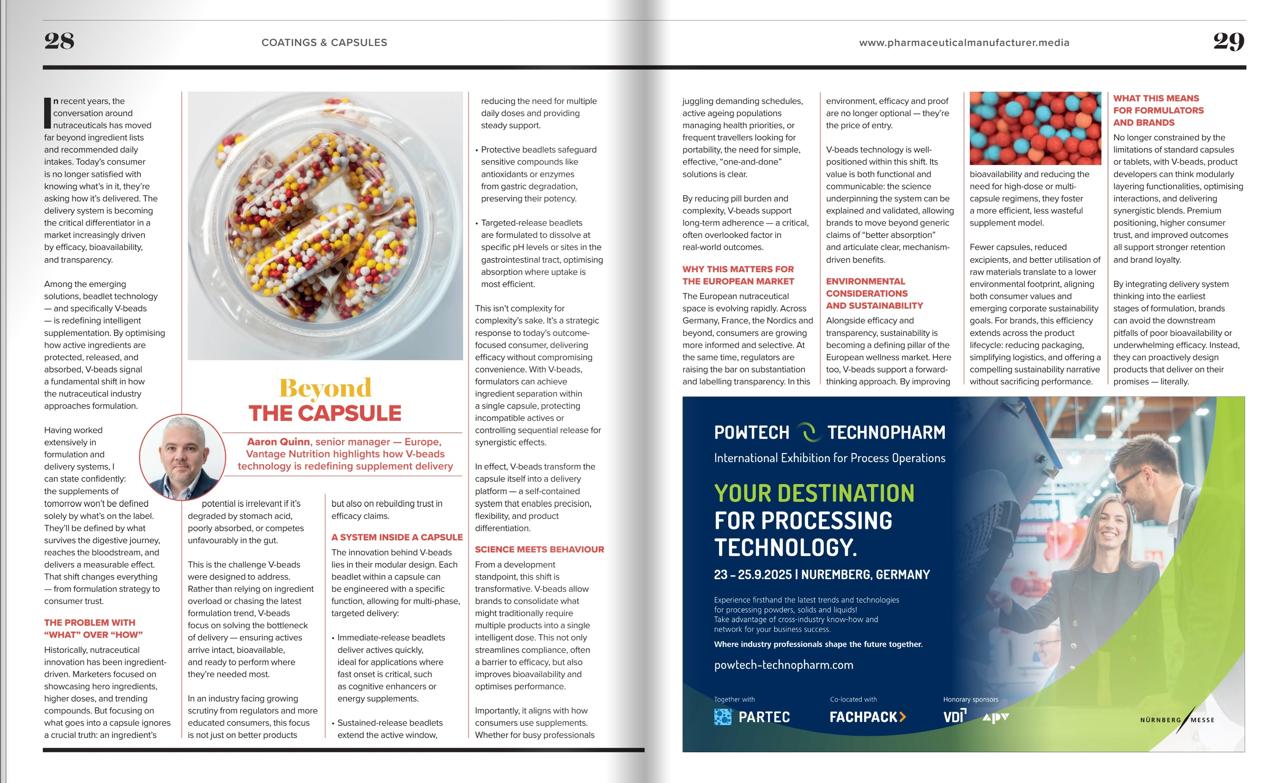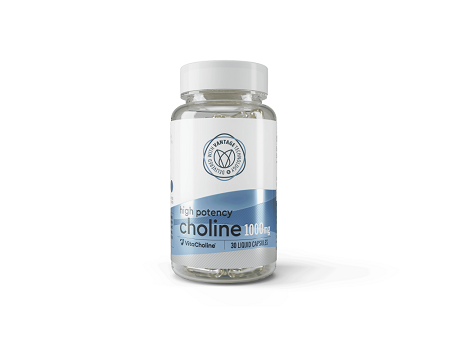Personalised nutrition has long been touted as the “holy grail” for both consumers and the nutraceutical industry; however, the sheer scalability, cost of manufacturing and distribution have always been sticking points when it comes to reaching this goal
Perusing the shelves of health food shops and chemists today, consumers can find a number of supplements that are tailored to suit specific categories, including lifestyle, gender, age or symptoms such as sleeplessness.
With label descriptions boasting menopause support, health and vitality, fatigue reduction or joint support, this approach has proved to be cost-effective.
This broad “bucket” system assigns individuals to preset products based on their answers to a few health- and nutrition-related questions.
ALTHOUGH IT HELPS TO DIRECT CONSUMERS TO SPECIALIST FORMULATIONS AND SUPPLEMENTS,
REFERRING TO THIS APPROACH AS “PERSONALISED NUTRITION” IS A MISNOMER.
It represents a disconnect between what the nutraceutical market labels as “personalised” and what bespoke supplements are available to consumers.
A stamp of authority or definition of what “personalised nutrition” actually means has yet to be agreed; but, with the help of technology and data, significant advances are being made to bridge this gap.
Aaron Quinn (pictured), Senior Manager – Europe at Vantage Nutrition, reports.
Tackling scalability through innovation
Trying to define, agree and develop a workable solution to deliver true, fully customised personalised nutrition supplements has been hindered by the sheer cost and scalability of the task for years.
Tackling the complexity and cost of safely manufacturing multiple blends and formulations to create small batches of 60 custom capsules on machines that are used to produce thousands of capsules per hour was just one of the hurdles that needed to be overcome.
As was managing the logistics of creating and packaging the custom supplements and ensuring they were safely delivered to the right customers.
That is, until the recent launch of the patented PCM (personalised capsules machine).
Global pharmaceutical and nutraceutical manufacturing solution providers, ACG, and pioneers in personalised supplement development, Art of You (AoY), have combined their in-depth expertise in manufacturing, engineering and science to build a truly scalable personalised nutrition system.
Five years in development, this new platform breaks away from the more generic “bucket” model and offers true personalisation.
Every capsule produced by the PCM is not only tailored to meet an individual’s health needs but is manufactured on-demand with near-clinical precision … down to a single beadlet.
The power of data

To make this happen, the PCM merges real-time biomarker data and lifestyle insights with precision dosing and automated capsule production to create individualised supplements for its customers (who sign up a members for 6 months or a year at a time).
Members are given secure access to AoY’s central app, called the Art of Youniverse, which collects data from the individual’s wearable tech and any test results they choose to upload or share. This information includes
- heart rate, sleep, VO2 Max and other physical activity data from the individual’s fitness trackers and devices
- answers from lifestyle and cognitive questionnaires
- recent blood test results.
Pharmaceutical-grade quality
Each personalised formulation is brought to life with ACG’s advanced beadlet and capsule technologies. The final product is delivered in vegan-friendly, clean-label H+ capsules; this helps to both enhance bioavailability and ensure that the ingredients remain stable and are optimally absorbed by the body.
Safety and precision are also central to the system. Each capsule batch is accompanied by a detailed printout comparing the target formulation with the actual output.
Although most of the industry accepts a dosage variance of ±10%, the PCM goes beyond the norms of pharmaceutical tolerance manufacturing by ensuring accuracy down to a single beadlet.
To ensure each tailored plan remains up-to-date and relevant, members will be reevaluated each year (or every 6 months) and their formulations updated to reflect any changes in their health profiles.
Minimising logistical challenges
As with any innovation, the development journey of the PCM platform has not been easy. The surge in rapid delivery services such as Zomato and Deliveroo during COVID served as a source of inspiration for the PCM.
Recognising an opportunity to bring that same level of convenience to wellness, ACG wanted to enable people to order a personalised supplement formula, have it produced and delivered on demand.
Now that this vision is a reality, managing it takes careful planning. To keep things simpler and more controlled, PCM will initially be a mail-order service. Personalised nutrition plans and supplements will be created at centralised production facilities and delivered directly to members’ doors.
This approach allows more space for safe storage, with facilities having the ability to keep 6–12 months’ worth of ingredients on hand. With time, facilities will learn which ingredients are the most prevalent and gain an understanding of who needs what and when.
The team is still exploring the viability of whether machines will be customer facing with a presence in select retail stores in the future.
With the number of combinations growing from the hundreds to the thousands, this approach would need to be carefully managed to avoid inventory and storage issues.

A potential compromise may be the creation of a few PCM “showrooms” that are designed to let consumers see how the platform works and encourage new members to sign up.
Laying the groundwork for growth
True personalisation comes with a high price tag, so the initial rollout will begin with a lower volume, higher value model with memberships aimed at ultra-high net worth individuals.
The first phase of deployment will focus on the Netherlands and the DACH region (Germany, Austria and Switzerland), leveraging centralised production hubs to ensure consistency, efficiency and scalability from the outset.
These hubs are designed to maximise machine uptime, streamline logistics and allow for more agile fulfilment operations. With ambitious growth plans, memberships will then be rolled out to further EU member states and beyond.
As people become increasingly proactive in terms of managing their health, technologies such as the PCM not only help to deliver truly personalised nutrition but also help to support a broader shift from treatment to prevention.
Empowering individuals to track and respond to real-time health data may reduce their reliance on reactive interventions and ease the pressure on healthcare systems with time.



